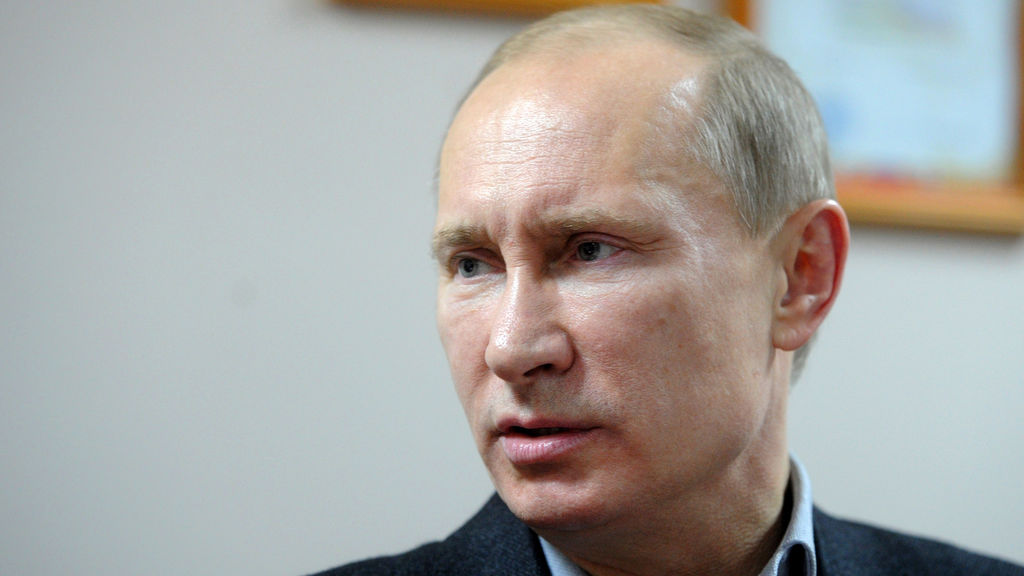Ukraine crisis: France suspends warship delivery to Russia
French President Francois Hollande describes the fighting in eastern Ukraine as “grave” as he announces that two helicopter carriers will not be delivered to Russia next month.
Russia’s Deputy Defence Minister Yuri Borisov told the Russian news agency Itar-Tass that the decision would have little impact: “Although of course it is unpleasant and adds to certain tensions in relations with our French partners, the cancelling of this contracts will not be a tragedy for our modernisation (of the army)”.
President Hollande’s office said that he had reached his decision to suspend the delivery of the warship “despite the prospect of a ceasefire, which has yet to be confirmed and put in place”.
On Wednesday Ukrainian President Petero Poroshenko said he hoped talks for a peace process in eastern Ukraine will begin on Friday in Minsk.

‘Ceasefire’
Earlier today, the Ukrainian president’s office said that President Petro Poroshenko and Russian President Vladimir Putin had reached an agreement on a ceasefire, although Kremlin spokesman Dmitry Perkov later claimed only steps towards peace had been reached because Moscow was not “party to the conflict”.
Russia cannot physically agree to a ceasefire because it is not a party to the conflict. Kremlin spokesman
However, President Putin said that an agreement between Kiev and rebels could be reached by 5 September on the stipulation that Ukrainian troops halt military operations in the region, and that a humanitarian corridor is opened for refugees and aid supplies.
Pro-Russian separatists have been battling Kiev’s forces in the mainly Russian-speaking region of Donbass, which is home to most of Ukraine’s heavy industry and accounts for about 18 per cent of the country’s economic output.
Vladimir Antyufeyev, deputy prime minister of the self-proclaimed Donetsk People’s Republic, told Reuters that talk of a ceasefire was a “provocation” because Russia was not involved in the conflict, adding that the main condition for peace would be for Ukrainian forces to withdraw from the territory.
The apparent truce appeared to be short-lived after reports of loud artillery explosions on the outskirts of Donetsk.
Sanctions remain
A German government spokesman also said that it did not have confirmation of a ceasefire and so it would continue to follow a timeframe on further sanctions against Russia agreed by the European Council on Saturday.
President Obama mirrored Germany’s sentiments telling a press conference in Tallinn, Estonia that it was too early to tell what the ceasefire actually meant. He added that no settlement was possible as long as Russia is “sending troops disguised as separatists” into the country.
Great wall of Ukraine?
Ukraine’s Prime Minister Arseniy Yatseniuk calls for a “real state border” between Ukraine and Russia, despite both parties agreeing to a peace process in eastern Ukraine’s Donbass region.
Yatseniuk told a televised cabinet session that Ukraine had adopted a “wall” project, aimed at constructing an actual border, but did not elaborate.
Since the collapse of the Soviet Union, the long border between the two countries has been largely porous – a fact that Kiev says has helped fighters and weapons to pass freely from Russia into its territory.
Using tough rhetoric on the eve of the Nato summit in Wales, Yatseniuk said: “Russia is a terrorist state, it is an aggressor state and will bear responsibility under international law. The real plan of Putin is to destroy Ukraine and to restore the Soviet Union.
“Concerning Nato, I consider the most correct decision would be one to accept Ukraine as a member of Nato,” he added, repeating a call he made last week.